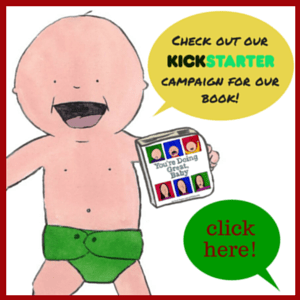Birth is such an important time in a woman’s life. When a baby is born, a mother is born as well. Here are some thoughts about my two birth experiences with our boys. Reading other people’s birth stories has helped me process my own experiences, so I am offering these up in the hope they may help someone else.
Labouring at home
Get to hospital: freak out!
Vaccum and he’s here
Leo’s birth was traumatic for me (and probably for him too). We laboured beautifully at home (got to 9cm dilated), but when we got to hospital things went pear-shaped. He was born with the use of ventouse extraction, with a lot of fear and a bunch of medical people we had never met before in the room. He was whisked away for oxygen before I could hold him, or even look at him. We were reunited about twenty minutes later, but it was the longest twenty minutes of my life.
For the first few hours after he was born I felt like it had all been wonderful. I had a beautiful, healthy baby after all.
But then the memories of the birth started coming back to me in bits and pieces, along with a flood of emotions. I remembered being told not to push when I had the urge to (with no explanation) and then later being told crossly that I wasn’t pushing hard enough or fast enough and that my baby was in danger. I remembered the rushed episiotomy. The phone call for back-up being made in haste and the room being filled with medical professionals and bright light and me flat on my back.
I remembered the last thing I heard before he was born was the obstetrician saying to the midwife “of course the heart-rate would be fine now…”
Nothing was explained to me about what had just happened. It felt like I could have just dreamt it all.
“A woman is more likely to develop PTSD if she feels like all control has been taken from her and she is the passive object of other’s ministrations. She isn’t asked for consent, for example, for different maneuvers which they may do. She’s supposed to shut up and let them get on with doing the birth. And she comes out of that feeling helpless, and this helplessness can persist in other areas of her life too, so it’s not just the birth. So she gives up and feels that it isn’t justified for her to take responsibility for anything. And women can feel this for many, many years and I’ve had women in their 60s and 70s call me to talk about births which they haven’t yet worked through and this experience has stayed with them and incapacitated them.”
Sheila Kitzinger (1929-2015), author and birth activist
I believe in Jane Hardwicke Collings‘ idea that “everyone has the birth they need to have to teach them what they need to learn on their journey to wholeness.” She also believes that we learn something from each birth that helps women mother their child. Through Leo’s birth I learnt that I didn’t know how to communicate my needs effectively. Everything that I learnt during Leo’s birth, and in those early months as his mother, taught me how to tell people what I needed and how to advocate for myself and him. Now that Leo is five, it makes my heart sing to see how easily he tells people what he needs. That was always something I struggled with as a child (and as an adult).

















